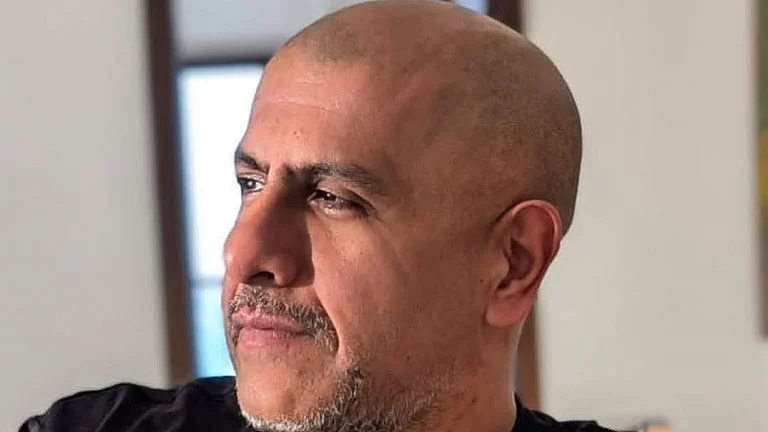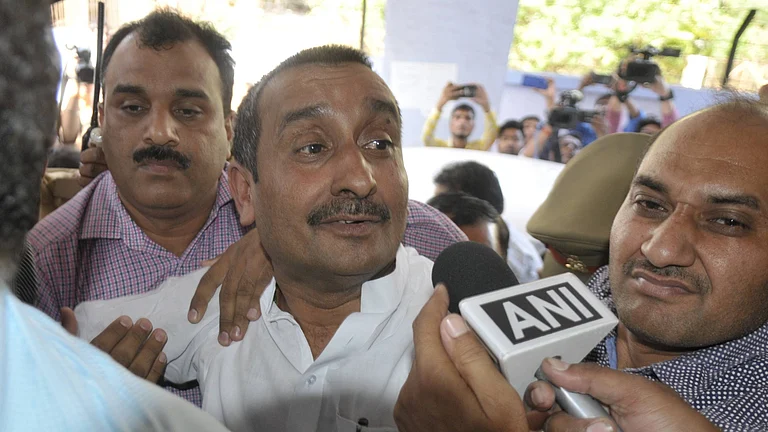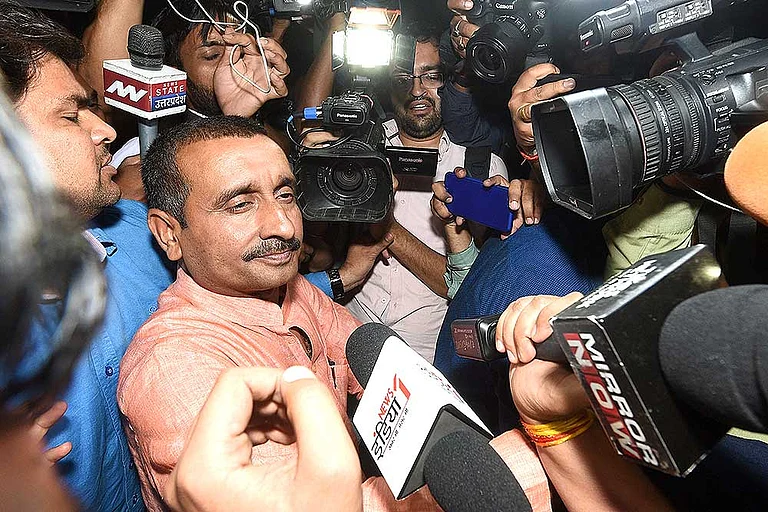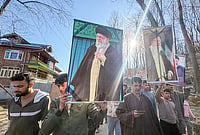All India Institute of Medical Sciences (AIIMS) on Thursday moved the Delhi High Court against an order allowing a 27-week pregnant minor rape survivor to terminate pregnancy.
A high court single judge on June 30 ordered AIIMS to terminate the 16-year-old girl’s pregnancy.
AIIMS, before a bench of Chief Justice D K Upadhyaya and Justice Anish Dayal, argued that terminating her pregnancy would hamper her future reproductive health.
The bench asked the mother of the minor girl and chairperson or a member of the medical board to remain present at around 2.30 pm when hearing would continue.
The court also remarked that "advising a rape victim to prolong her pregnancy will entail anxiety" which could have a grave impact on her mental health.
Additional solicitor general Aishwarya Bhati, representing AIIMS, said the medical board opined that the girl’s health needed to be protected.
“As an officer of the court today I am urging your lordships to be ‘parens patriae’ of this young girl and protect her. She does not want the child, understandable. We, in AIIMS, will do everything best for the child,” he submitted.
On the court’s query whether it would be safe to terminate the pregnancy after 34 weeks, Bhati replied in the affirmative.
She, however, underlined the precarious situation right now and the girl’s well-being, prompting AIIMS to move court.
Bhati said the girl was 27-week pregnant and the termination of her pregnancy would jeopardise her reproductive life and future chances of conceiving.
Referring to the relevant law, Bhati said pregnancy could be terminated after 24 weeks of gestation period only in two situations – if there is a grave risk to the woman’s life or congenital anomalies in the fetus.
AIIMS moved against a single judge’s June 30 order allowing the minor sexual assault survivor to terminate her then 26-week pregnancy.
It came on record that the medical board was not in favour of allowing the termination of pregnancy in view of the advanced gestational age requiring most likely a cesarean section procedure which could adversely affect the girl's future reproductive health.
The medical board opined that the girl was otherwise physically fit.
The girl and her mother, however, insisted on not continuing with the pregnancy.
She moved the court after the doctors expressed their inability to proceed due to the statutory restrictions provided under the MTP Act, limiting such procedures to 20 weeks in ordinary cases and 24 weeks in certain categories such as rape survivors.
According to the girl's lawyer, the minor was sexually assaulted by a man during Diwali in 2024 but she did not disclose the incident to anyone.
She was again sexually assaulted in March by another person, resulting in her pregnancy, her lawyer said.
She learnt about the pregnancy only when she went to a doctor with her sister and when her family members got to know, she confided in them about the sexual assault, leading to the filing of the FIR.
At the time of the FIR in June, the gestational age exceeded the prescribed 24-week limit.
The police arrested the accused of the March sexual assault incident whereas the man who assaulted her last year is yet to be nabbed, the court was informed.
The single judge in its order recorded judgments, including that of the Supreme Court, in which pregnancy was allowed to be terminated in cases where gestational period exceeded 27 weeks and even of 33 weeks.
The AIIMS doctors, as a result, were ordered to maintain a complete record of the procedure aside from preserving the fetus tissue, which could be required for DNA identification and investigation purposes.
The court further directed the state authorities to bear all the expenses of the medical procedure, the girl's stay at the hospital and the expenditure of post-operative care.


























